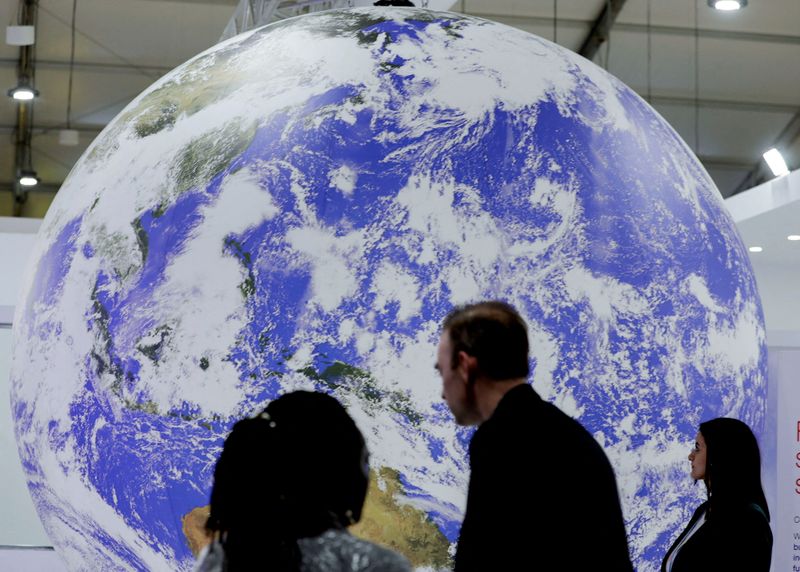(Reuters) - At the COP27 conference in Egypt, delegates have at their disposal decades of research into warming trajectories published by the U.N. climate science agency to inform their decisions.
The Intergovernmental Panel on Climate Change (IPCC) produces reports roughly every five years that represent global scientific consensus on climate change, its causes and its impact. Last year's report tackled the main drivers of global warming and the core elements of climate science.
That was followed by two major reports this year - one in February addressing how the world will need to adapt to climate impacts, from rising seas to dwindling wildlife, and another in April on ways to mitigate climate-warming emissions.
Here are some of the takeaways from those reports:
HUMANS UNEQUIVOCALLY TO BLAME
* Last year's report on the physical basis for climate change unequivocally blamed humans for rising temperatures.
* It also said climate change was dangerously close to spinning out of control.
* Previously rare weather extremes are becoming more common, and some regions are more vulnerable than others.
* For the first time, the report's authors called for urgent action to curb methane. Until now, the IPCC had focused on carbon dioxide, the most abundant greenhouse gas.
* With time running out to prevent runaway climate change, the authors said it was worth looking into the benefits and drawbacks of geoengineering, or large-scale interventions, such as injecting particles into the atmosphere to block out solar radiation.
* The report said the world's nations, including the wealthiest, needed to start preparing for climate impacts and adapting to a warmer world.
URGENT NEED TO ADAPT TO HEATWAVES, STORMS, SEA LEVEL CHANGE
* News of Russia's invasion of Ukraine eclipsed the release in February of a seminal report on how the world should prepare for a warmer world.
* With climate change already causing extreme weather worldwide, the report urged rich and poor countries alike to adapt now to impacts including more frequent heatwaves, stronger storms and higher sea levels.
* The report made clear that different regions face different risks, and offered localised projections for what to expect.
* Millions of people face poverty and food insecurity in the coming years, as climate change hits crops and water supplies and threatens to disrupt trade and labour markets.
* The daunting forecast for the world's poor reignited calls for a "Loss and Damage" fund through which rich nations would compensate for costs incurred by poor countries from climate-related disasters.
Following a breakthrough at the start of this year's climate summit, the issue of loss and damage is for the first time part of the U.N. talks' formal agenda.
'NOW OR NEVER', INDIVIDUAL ACTION MATTERS
* It's "now or never," one report co-chair said in releasing findings that show that only drastic emissions cuts in the next few decades would prevent warming from spiralling out of control.
* The report explored how various emissions scenarios would translate into future temperature rise.
* Cities are a big part of the emissions problem, it said, but also a source of hope and positive solutions.
* The energy transition to renewable sources and clean-burning fuels is moving too slowly.

* The report went beyond focusing on fossil fuels and manufacturing to urge strong climate action in agriculture, where farming methods and better forest protection could curb emissions.
* It warned that climate change threatens economic growth, and for the first time highlighted the need for action at the individual level, calling on governments to agree policies to change consumer and transportation habits to encourage less waste.